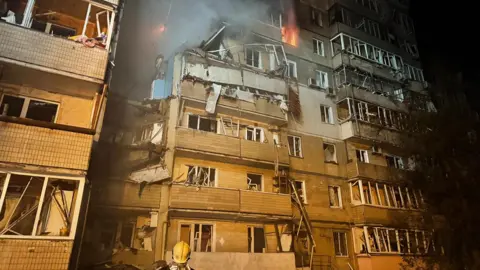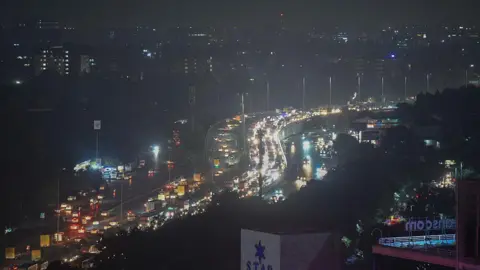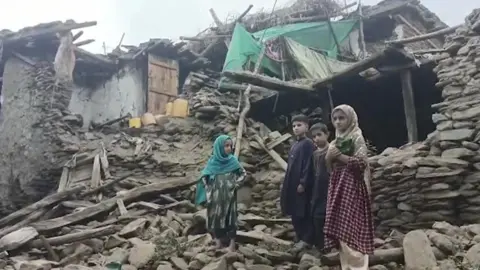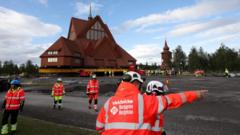The vastness of the building site was at first overwhelming for the young Ethiopian mechanical engineer.
Hundreds were already digging the foundations in tough conditions for what is now Africa's largest hydro-electric dam, straddling the Blue Nile. Moges Yeshiwas was 27 when he arrived in that remote corner of western Ethiopia in 2012, eager to gain valuable experience in his profession. The completion of the project is set to change his nation, but it also changed his life.
On Tuesday, Prime Minister Abiy Ahmed formally launched the Grand Ethiopian Renaissance Dam (GERD), which will help electrify the country as well as provide power to the region.
The dam wall stretches 1.78km (1.1 miles) across a valley and stands 145m (475 feet) high – it is constructed with 11 million cubic meters of concrete. It has created a huge reservoir, called Lake Nigat, which means 'dawn' in the Amharic language.
The dam's construction on a Nile tributary was controversial, leading to diplomatic tensions with downstream countries like Egypt. However, for Ethiopia, the GERD has become a symbol of national pride and a declaration of its intentions on the world stage.
On a personal level, Moges, now 40, expressed his pride in being part of the project. He recalls watching the dam's progress day by day as deeply satisfying and even emotional.
The journey to build the dam faced many challenges including lengthy separations from families, extreme environmental conditions, and long working hours. Despite these hardships, the project became a unifying force in a country marked by political violence.
Millions of Ethiopians actively contributed to the dam through donations and the purchase of government bonds. Even individuals from diverse regions, like clinical nurse Kiros Asfaw from Tigray, supported the project despite the conflict affecting their regions.
Now, with all the turbines operational, Ethiopia looks to a new era; the dam is expected to produce 5,100MW of power, significantly increasing the national capacity to electrify homes and improve lives across the country. However, significant work lies ahead to improve infrastructure and ensure power reaches every corner of the nation.
For many like Getenesh Gabiso, a mother from Alamura, the dream of light in their homes is just the beginning of what the GERD can provide, emphasizing hope for the future.



















